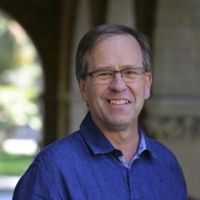Social Dynamics of Data and Information (SDDI)

This concentration allows students to study how data, information, and information technology (IT) both shape and are shaped by social action and social change. Students can study anything from human language and writing to computers, social media, “big data,” machine learning, and artificial intelligence. The social shaping of data, information, and IT — by history, law, economics, culture, politics, and government — is one aspect of SDDI. The flip side of social shaping is the way that data, information, and IT transform society, culture, politics, inequality, design, justice, and sustainability.
STS Concentration Area Requirements
- 4 (BS) or 8 (BA) Socio-cultural courses from the approved course list for the selected concentration area including 3 Concentration Core courses
-
4 (BA) or 8 (BS) Technical courses from the approved course list for the selected concentration area
- A cohesive overall theme, or two, that articulate how your Concentration Core and Sociocultural courses help you to critically examine your Technical courses.
50+ units; 12 course minimum. Note that the 50-unit requirement may require taking additional courses and that approved courses may not be approved for your specific concentration, if your curriculum does not achieve the above requirements as a whole.
Don't forget the Major Requirements : As for all concentrations, students will need to fulfill the Program Core course requirement (26+ units; 8 course minimum with grade C minimum).
Socio-Cultural Courses (4 BS/8 BA)
STS Sociocultural Courses
-
Provide historical, social, cultural and/or political context for specific areas of science and technology in each concentration
-
May include STS Program Core or Concentration Core courses not used to fulfill those requirements
-
Electives must be part of a cohesive plan approved by the STS Associate Director
-
See major requirements for more information
Smith, F. (PI)
Engel, C. (PI)
Guarna, T. (TA)
Bergmann, R. (TA)
Dill, E. (TA)
Hancock, J. (PI)
Park, R. (TA)
Decatur, C. (TA)
Chi, Y. (TA)
Lepp, H. (TA)
Fetterolf, E. (TA)
Christin, A. (PI)
Dalton, M. (TA)
Chi, Y. (TA)
Reeves, B. (PI)
Tadesse, H. (TA)
Chen, C. (TA)
Ross, R. (TA)
Akselrad, D. (TA)
Uribe, D. (GP)
Hossain, A. (PI)
Rider, K. (PI)
Hancock, J. (PI)
Gupta, A. (TA)
Obbad, E. (TA)
Cheruiyot, I. (TA)
Dash, A. (TA)
Oyeniyi, T. (TA)
Patterson, K. (TA)
Stamos, A. (PI)
Ulloa, Y. (TA)
LaRosa, N. (TA)
Nguyen, A. (TA)
Gregg, C. (PI)
Felter, J. (PI)
Blank, S. (PI)
Lakhtakia, S. (TA)
Jonga, S. (TA)
Dupenloup, P. (TA)
Moen, M. (TA)
Liautaud, S. (PI)
Liautaud, S. (PI)
Windham, P. (PI)
Furuta, J. (PI)
Hernandez, J. (TA)
Lamparth, M. (PI)
Ticea, N. (TA)
Banks, A. (PI)
Eigbe, N. (TA)
Ota, K. (TA)
Mon, K. (TA)
Schechtman, K. (TA)
Forster, M. (TA)
Goodman, N. (PI)
Wu, J. (PI)
Concentration Core (CC) Courses: 3 required for BA/BS
STS Concentration Core courses
CC, formerly Foundational
- Are specifically designated sociocultural courses directly relevant to the chosen STS concentration
- Provide students with tools to critically engage with the knowledge and skills they are learning in their technical courses
- Cannot be double-counted with student’s choice of Program Core courses
- Cannot be substituted or petitioned
Smith, F. (PI)
Engel, C. (PI)
Guarna, T. (TA)
Bergmann, R. (TA)
Dill, E. (TA)
Chi, Y. (TA)
Lepp, H. (TA)
Fetterolf, E. (TA)
Christin, A. (PI)
Ross, R. (TA)
Akselrad, D. (TA)
Uribe, D. (GP)
Hossain, A. (PI)
Rider, K. (PI)
Ticea, N. (TA)
Technical Courses (4 BA/8 BS)
STS Technical Courses
-
Courses involving lab work, engineering problems, coding, or other technical work in science, technology, or medicine
-
Help build technical knowledge and skills relevant to the chosen concentration
-
Students seeking the B.S. degree take more of these
-
The majority of Technical Electives should be a sequence (or two sequences) of increasingly advanced levels. In general, introductory courses with little technical content will not be approved.
-
At least one sequence should be accompanied by either Concentration Core or Sociocultural Electives that allow you to examine and analyze its context and social consequences
Tam, C. (TA)
McMillan, T. (TA)
Traver, D. (TA)
Tuttle, G. (GP)
Kung, B. (TA)
Rodriguez, J. (TA)
Saue- Fletcher, L. (TA)
Raman, V. (TA)
Carrell, T. (TA)
Agashe, R. (TA)
Chang, T. (TA)
Zhai, W. (TA)
Xia, W. (TA)
Han, R. (TA)
Sotoudeh, M. (TA)
Chung, J. (TA)
Aiu, K. (TA)
Raman, V. (TA)
Roman, E. (TA)
Agashe, R. (TA)
Anvari, M. (TA)
Jee, Y. (TA)
Pandya, D. (TA)
Cao, S. (TA)
Chang, T. (TA)
Zhai, W. (TA)
Xia, W. (TA)
Han, R. (TA)
Liu, A. (PI)
Schwarz, K. (PI)
Chung, J. (TA)
Raman, V. (TA)
Anvari, M. (TA)
Pandya, D. (TA)
Cao, S. (TA)
Chang, T. (TA)
Zhai, W. (TA)
Xia, W. (TA)
Han, R. (TA)
Wei, P. (TA)
Young, P. (PI)
Cornwall, E. (GP)
Cornwall, E. (TA)
Piech, C. (PI)
Cornwall, E. (TA)
Szumlanski, S. (PI)
Kwarteng, C. (TA)
Kwarteng, C. (TA)
Kwarteng, C. (TA)
Chen, K. (TA)
Young, P. (PI)
Ahmed, K. (TA)
Cai, D. (TA)
Kanell, T. (TA)
Aydin, A. (TA)
Borbon Miranda, C. (TA)
Babbitt, L. (TA)
Angelika-Nikita, M. (TA)
Rebelsky, D. (TA)
Andrews, S. (TA)
Adekola, O. (TA)
Ascheman, A. (TA)
Jitaru, A. (TA)
Ayoob, M. (TA)
Lee, M. (TA)
Aydin, A. (TA)
Gupta, A. (TA)
Tlemcani, R. (TA)
Babbitt, L. (TA)
Rodriguez, S. (TA)
Andrews, S. (TA)
Adekola, O. (TA)
Carrell, T. (TA)
Jitaru, A. (TA)
Vallabhaneni, H. (TA)
Lee, M. (TA)
Gregg, C. (PI)
Ahmed, K. (TA)
Aydin, A. (TA)
Borbon Miranda, C. (TA)
Babbitt, L. (TA)
Andrews, S. (TA)
Kaputa, Z. (TA)
Adekola, O. (TA)
Carrell, T. (TA)
Jitaru, A. (TA)
Granado, M. (TA)
Adekola, O. (PI)
Chen, K. (TA)
Young, P. (PI)
Xie, M. (TA)
Wang, S. (TA)
Woodrow, J. (TA)
Michel, I. (TA)
Cheng, K. (TA)
Tinker, J. (TA)
El Boudali, H. (TA)
Fakih, N. (TA)
Harvill, M. (TA)
Qiu, T. (TA)
Alagbe, K. (TA)
Kang, R. (TA)
Cochran, K. (TA)
Vu, M. (TA)
Ravi, N. (TA)
Chellah, O. (TA)
Palleti, R. (TA)
Mejia, J. (TA)
Michel, I. (TA)
Cheng, K. (TA)
Borbon Miranda, C. (TA)
Harvill, M. (TA)
Alagbe, K. (TA)
Vu, M. (TA)
Ravi, N. (TA)
Mejia, J. (TA)
Grover, K. (TA)
Gupta, A. (TA)
Michel, I. (TA)
Cheng, K. (TA)
Harvill, M. (PI)
Buch, D. (TA)
Alagbe, K. (TA)
Vu, M. (TA)
Palleti, R. (TA)
Mejia, J. (TA)
Grover, K. (TA)
Govil, Y. (TA)
Hanlon, M. (TA)
Tang, E. (TA)
Cao, M. (TA)
Saracay, E. (TA)
Zuna Largo, W. (TA)
Baruah, N. (TA)
Ahmad-Stein, D. (TA)
Khandelwal, P. (TA)
Kansal, A. (TA)
Gorelik, I. (TA)
Marchini, M. (TA)
Govil, Y. (TA)
Kohli, S. (TA)
Tang, E. (TA)
Zhang, X. (TA)
Verma, S. (TA)
Zuna Largo, W. (TA)
Ayoob, M. (TA)
Palleti, R. (TA)
Dange, R. (TA)
Gorelik, I. (TA)
Marchini, M. (TA)
Escandon, E. (TA)
Granado, M. (TA)
Li, G. (TA)
Kohli, S. (TA)
Verma, S. (TA)
Khandelwal, P. (TA)
Marchini, M. (TA)
Escandon, E. (TA)
Ousterhout, J. (PI)
Gurusankar, G. (TA)
Lee, H. (TA)
Xiao, J. (TA)
Buch, D. (TA)
Phatak, U. (TA)
McAvity, J. (TA)
Santiago, F. (TA)
Leon, A. (TA)
Ryan, M. (TA)
Wu, J. (TA)
Nabi, F. (TA)
Kacharia, N. (TA)
Mukherjee, A. (TA)
Akintan, M. (TA)
Oyeniyi, T. (TA)
Tchapmi, M. (TA)
Moore, A. (TA)
Chang, J. (TA)
Chen, H. (TA)
Qu, C. (TA)
Chou, A. (TA)
Gaidon, A. (PI)
Russell, D. (PI)
Bradfield, A. (TA)
Chang, J. (TA)
Badrinath, A. (TA)
Maheshwari, E. (TA)
Wu, J. (TA)
Li, R. (TA)
Escandon, E. (TA)
Joerke, M. (TA)
Zhou, G. (TA)
Lee, J. (TA)
Lee, T. (TA)
Leon, A. (TA)
Hoang, N. (TA)
Doby, S. (TA)
Brenner, R. (PI)
Chiueh, D. (TA)
Tumgoren, S. (PI)
Tchapmi P., L. (TA)
Sadigh, D. (PI)
Jeon, H. (TA)
Tchapmi, M. (TA)
Hejna, J. (TA)
Lin, K. (TA)
Lee, A. (TA)
Melo, L. (TA)
Camacho, S. (TA)
Phatak, U. (PI)
Roman, E. (TA)
Verma, S. (TA)
Li, C. (TA)
Ryan, M. (TA)
Zhang, P. (TA)
Michaels, J. (TA)
Wornow, M. (TA)
Zhang, T. (TA)
Pandya, D. (TA)
Hu, G. (TA)
Nie, N. (TA)
Yang, S. (TA)
Ko, J. (TA)
Anari, N. (PI)
Koyejo, S. (PI)
Dixit, A. (TA)
Pampari, A. (TA)
Taori, R. (TA)
Bruzzese, T. (TA)
Lee, A. (TA)
Frausto, J. (TA)
Ryan, M. (TA)
Liu, S. (TA)
Zhang, P. (TA)
Kansal, A. (TA)
Wang, R. (TA)
Khurana, A. (TA)
Agarwal, R. (TA)
Ko, J. (TA)
Chong, W. (TA)
Guo, W. (TA)
Kim, B. (TA)
Tupuri, S. (TA)
Khatib, O. (PI)
Nilforoshan, H. (TA)
Zhang, X. (TA)
Ali Mohammadi, Y. (TA)
Agrawal, A. (TA)
Soni, P. (TA)
Sriram, A. (TA)
Li, Y. (TA)
Zhu, C. (TA)
Oyeniyi, T. (TA)
Garg, A. (TA)
Jin, M. (TA)
Piedra, A. (GP)
Khatib, O. (PI)
Zhou, G. (TA)
Miller, G. (TA)
Rodriguez, S. (TA)
Phatak, U. (TA)
Verma, S. (TA)
Zuna Largo, W. (TA)
Doby, S. (TA)
Haghighi, N. (TA)
Wan Rosli, D. (TA)
Jee, Y. (TA)
Cowan, N. (TA)
Xu, A. (TA)
Nair, Y. (TA)
Dey, A. (TA)
Gibbs, I. (TA)
Krew, J. (TA)
Katiyar, E. (TA)
Liu, S. (TA)
Jin, Y. (TA)
Moses, C. (TA)
Zheng, H. (TA)
Ghandwani, D. (TA)
Altshuler, G. (TA)
McKhann, C. (TA)
Brown, K. (TA)
Gablenz, P. (TA)
Xu, A. (TA)
Lee, J. (TA)
Xie, R. (TA)
Ziegler, Z. (PI)
Ziegler, Z. (PI)
Friedman, K. (TA)
Moanga, D. (PI)
Spencer, R. (TA)
Zimmerman, M. (TA)
Molbak, L. (TA)
David Rodrigues, I. (TA)
Woo, D. (TA)
Nitta, F. (TA)
Saidoni, P. (TA)
Davidova, S. (TA)
Manuelito, T. (TA)
Lee, T. (PI)
Krutko, O. (TA)
shankar, s. (TA)
Rosenberg, R. (TA)
Saldana, A. (TA)
Manuelito, T. (TA)
Iyer, N. (TA)
Ragins, M. (TA)
Rosenberg, R. (TA)
Salcedo, W. (TA)
Sokk, C. (TA)
Goel, A. (GP)
Ravipati, S. (TA)
Kapetanovic, Z. (PI)
Elezabi, H. (TA)
Zampa, C. (TA)
Kozyrakis, C. (PI)
Rutherford, E. (GP)
Lathi, P. (TA)
Song, D. (TA)
Chen, W. (TA)
Manuelito, T. (TA)
Peng, T. (TA)
Ayoob, M. (TA)
Nazirkhanova, K. (TA)
Kim, E. (TA)
Chandak, S. (TA)
Goel, A. (TA)
Kuo, E. (TA)
Dodhia, P. (TA)
Chekuri, S. (TA)
Ozgur, A. (PI)
Wilson, A. (TA)
Su, E. (TA)
Parikh, R. (PI)
Xin, V. (TA)
Stamos, A. (PI)
Hu, C. (TA)
Herrscher, J. (TA)
Zhang, X. (TA)
Zhang, E. (TA)
Ye, Y. (PI)
Dong, F. (TA)
Goyal, S. (TA)
Van Ness, M. (TA)
Bambos, N. (PI)
Love, S. (TA)
Crichton, C. (TA)
Lobato Lopez, R. (TA)
Parekh, N. (TA)
Miraoui, Y. (TA)
Blank, S. (PI)
Aubakirova, M. (TA)
Paul, S. (TA)
Weinstein, S. (PI)
Betancur, C. (PI)
Valentin, L. (PI)
Catanzaro, T. (TA)
Selfridge-Field, E. (PI)
Murakami, E. (PI)
Rhee, K. (TA)
Jiang, N. (TA)
Smith, S. (PI)
Jeong, Y. (TA)
Kanekar, R. (TA)
Tanoh, I. (TA)
Song, Z. (TA)
Smith, H. (TA)
Ji, W. (TA)
Gunawardana, D. (TA)
Walther, G. (PI)
Zhao, S. (TA)
Ho, V. (TA)
Shang, J. (TA)
Taylor, J. (PI)
Chen, Z. (TA)
Hu, A. (TA)
Zhang, J. (TA)
Ji, W. (TA)
Erdmann-Pham, D. (PI)
Not Currently Offered Courses
These courses are approved for one or more the STS concentrations but are not offered this academic year. You may find tabbing back to previous academic years in Explore Courses is helpful to see when courses have been offered historically. STS does not determine when courses in other departments will be offered as course offerings are at the discretion of the departments who own them.












